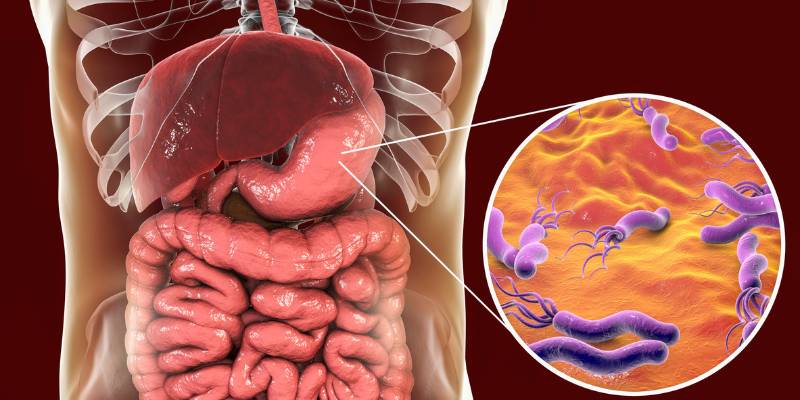Stomach cancer and ulcers are common gastrointestinal issues that share similar symptoms but differ considerably in severity and treatment. Stomach cancer involves the uncontrolled growth of abnormal cells in the stomach lining, whereas ulcers are painful sores in the stomach caused by factors like bacterial infections or excessive acid.
Misdiagnosis or delayed treatment can have serious consequences. Understanding their differences, symptoms, and treatment options is essential for effective management. If youre experiencing unexplained stomach discomfort, continue reading to understand these conditions better and take proactive steps toward better health.
Stomach Cancer Vs. Stomach Ulcers: Key Differences
Stomach Cancer:
Stomach cancer begins in the stomachs mucosal lining and may spread to other parts of the body if untreated. It is often asymptomatic in the early stages, making early diagnosis challenging. Risk factors include genetic predisposition, poor dietary habits, and infections like H. pylori. Stomach cancer can significantly impact overall health, requiring prompt intervention.
Stomach Ulcers:
Ulcers, or peptic ulcers, are open sores on the stomach lining caused primarily by Helicobacter pylori infections or long-term use of non-steroidal anti-inflammatory drugs (NSAIDs). Unlike stomach cancer, ulcers typically cause localized pain and are less likely to be life-threatening. Proper medical treatment and lifestyle adjustments can heal most ulcers.
Causes of Stomach Cancer and Ulcers:
- Genetic Factors: Stomach cancer can run in families, especially if close relatives have had the condition. Certain inherited gene mutations increase the risk significantly, making genetic predisposition a crucial factor in its development.
- NSAID Overuse: Prolonged use of nonsteroidal anti-inflammatory drugs (NSAIDs) like aspirin and ibuprofen damages the stomach lining, leading to ulcers. These medications weaken the protective mucus layer, allowing stomach acid to create sores.
- Dietary Habits: Diets high in smoked, pickled, or salted foods are linked to stomach cancer. For ulcers, certain spicy or acidic foods can aggravate symptoms but are not direct causes.
- Smoking: Bad habits significantly elevate stomach cancer risks. Smoking damages the stomach lining and affects blood flow, worsening ulcers and potentially contributing to cancer.
- Stress and Lifestyle: Chronic stress doesnt directly cause ulcers but can exacerbate them by increasing stomach acid production. Stress also impacts immune function, which can affect overall stomach health.
- Helicobacter Pylori Infection: H. pylori is a common bacterium that plays a role in both stomach cancer and ulcers. Chronic infection causes inflammation and may lead to changes in the stomach lining, increasing cancer risk or forming ulcers.

Symptoms of Stomach Cancer and Ulcers:
- Persistent Abdominal Pain: Stomach cancer often causes dull, unrelenting pain in the upper abdomen. Ulcer pain is typically sharp or burning and may improve temporarily after eating or taking antacids.
- Unexpected Weight Loss: Rapid weight loss without diet or exercise changes is a hallmark of stomach cancer. It results from a loss of appetite and the bodys inability to absorb nutrients properly.
- Loss of Appetite: Stomach cancer frequently causes a sudden disinterest in eating, often accompanied by nausea. Ulcers, on the other hand, may lead to reduced food intake due to fear of triggering pain.
- Fatigue: Persistent fatigue in stomach cancer is caused by anemia from internal bleeding or poor nutrition. Ulcer-related fatigue is less severe but can occur if bleeding leads to iron deficiency.
- Bloating and Belching: Ulcers often lead to gas buildup, causing bloating and frequent belching. These symptoms are less common in stomach cancer but may appear in advanced cases.
- Bloody Vomit or Stools: Advanced stomach cancer can cause severe bleeding, leading to vomiting with visible blood or dark, tarry stools. In ulcers, slow bleeding causes black stools, but vomiting blood is rare.

Treatment Options for Stomach Cancer
Stomach cancer requires an aggressive and multi-faceted approach:
- Surgical Options:
Gastrectomy: Removal of part or all of the stomach to eliminate cancer cells.
Surgery: Surgery is often combined with chemotherapy to ensure all cancerous tissue is removed.
- Chemotherapy:
Drugs like fluorouracil and cisplatin shrink tumors and kill cancer cells.
Used before surgery (neoadjuvant) to reduce tumor size or after (adjuvant) to prevent recurrence.
- Radiation Therapy:
High-energy beams target cancerous areas, especially when combined with chemotherapy.
- Targeted Therapy:
Focuses on specific proteins or genes that cancer cells need to grow.
Common drugs include trastuzumab for HER2-positive stomach cancers.
- Immunotherapy:
Boosts the immune system to fight cancer cells more effectively.
Medications like nivolumab are used in advanced cancer cases.
Treatment Options for Stomach Ulcers
Most stomach ulcers are treatable with medications and lifestyle adjustments:
- Antibiotics:
Used to eradicate H. pylori bacteria, the leading cause of ulcers.
Common combinations include amoxicillin, clarithromycin, and metronidazole.
- Proton Pump Inhibitors (PPIs):
Reduce stomach acid production, allowing the ulcer to heal.
Medications include omeprazole, esomeprazole, and pantoprazole.
- H2 Receptor Antagonists:
Decrease acid production by blocking histamine receptors in the stomach lining.
Examples include ranitidine and famotidine.
- Antacids:
Provide immediate relief by neutralizing stomach acid.
Effective for short-term symptom management.
- Lifestyle Modifications:
Quit smoking to reduce stomach lining irritation.
Avoid NSAIDs and spicy foods that aggravate the condition.
- Dietary Adjustments:
Eat smaller, more frequent meals with less acidic or fatty content.
Include soothing foods like bananas, oatmeal, and yogurt.
Prevention Strategies for Stomach Cancer and Ulcer:
Preventing stomach cancer and ulcers involves lifestyle changes and early detection.
- Eat a diet rich in fruits, vegetables, and whole grains.
- Avoid processed, smoked, and excessively salty foods.
- Seek treatment for H. pylori infections.
- Schedule regular medical checkups if you have a family history of cancer.
- Limit NSAID use and take them with food.
- Manage stress with relaxation techniques.
Conclusion
Both stomach cancer and ulcers can significantly impact your health if left untreated. Understanding their symptoms and causes is essential for early intervention. While ulcers are usually manageable with medication and lifestyle changes, stomach cancer requires more assertive treatments.
If you notice persistent symptoms like stomach pain, unexplained weight loss, or blood in vomit or stool, consult a doctor immediately. Regular checkups and a healthy lifestyle can help prevent these conditions. Dont ignore the signstimely action can save lives. Take charge of your health today by seeking medical advice if needed.






